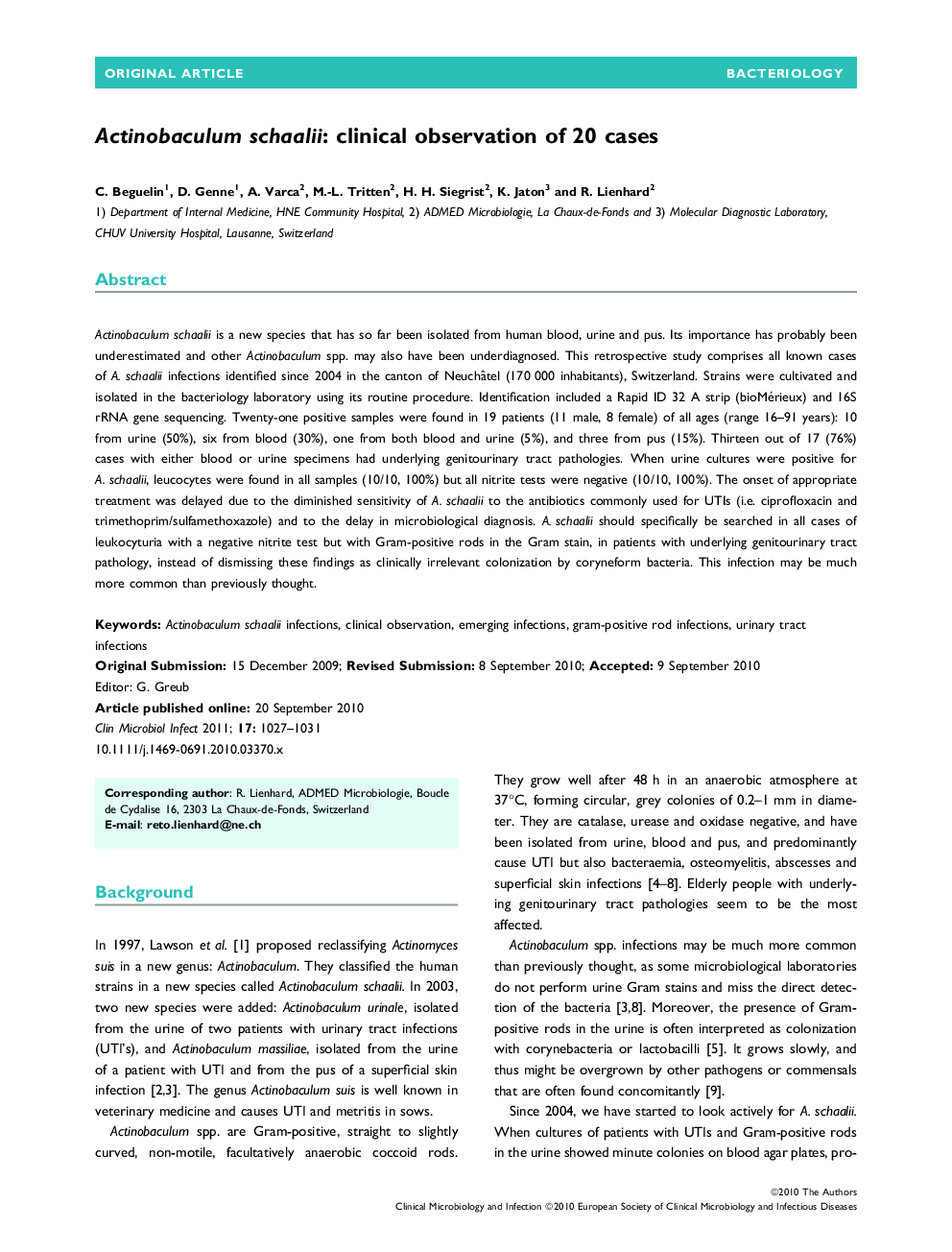| Article ID | Journal | Published Year | Pages | File Type |
|---|---|---|---|---|
| 3397688 | Clinical Microbiology and Infection | 2011 | 5 Pages |
Actinobaculum schaalii is a new species that has so far been isolated from human blood, urine and pus. Its importance has probably been underestimated and other Actinobaculum spp. may also have been underdiagnosed. This retrospective study comprises all known cases of A. schaalii infections identified since 2004 in the canton of Neuchâtel (170 000 inhabitants), Switzerland. Strains were cultivated and isolated in the bacteriology laboratory using its routine procedure. Identification included a Rapid ID 32 A strip (bioMérieux) and 16S rRNA gene sequencing. Twenty-one positive samples were found in 19 patients (11 male, 8 female) of all ages (range 16–91 years): 10 from urine (50%), six from blood (30%), one from both blood and urine (5%), and three from pus (15%). Thirteen out of 17 (76%) cases with either blood or urine specimens had underlying genitourinary tract pathologies. When urine cultures were positive for A. schaalii, leucocytes were found in all samples (10/10, 100%) but all nitrite tests were negative (10/10, 100%). The onset of appropriate treatment was delayed due to the diminished sensitivity of A. schaalii to the antibiotics commonly used for UTIs (i.e. ciprofloxacin and trimethoprim/sulfamethoxazole) and to the delay in microbiological diagnosis. A. schaalii should specifically be searched in all cases of leukocyturia with a negative nitrite test but with Gram-positive rods in the Gram stain, in patients with underlying genitourinary tract pathology, instead of dismissing these findings as clinically irrelevant colonization by coryneform bacteria. This infection may be much more common than previously thought.
